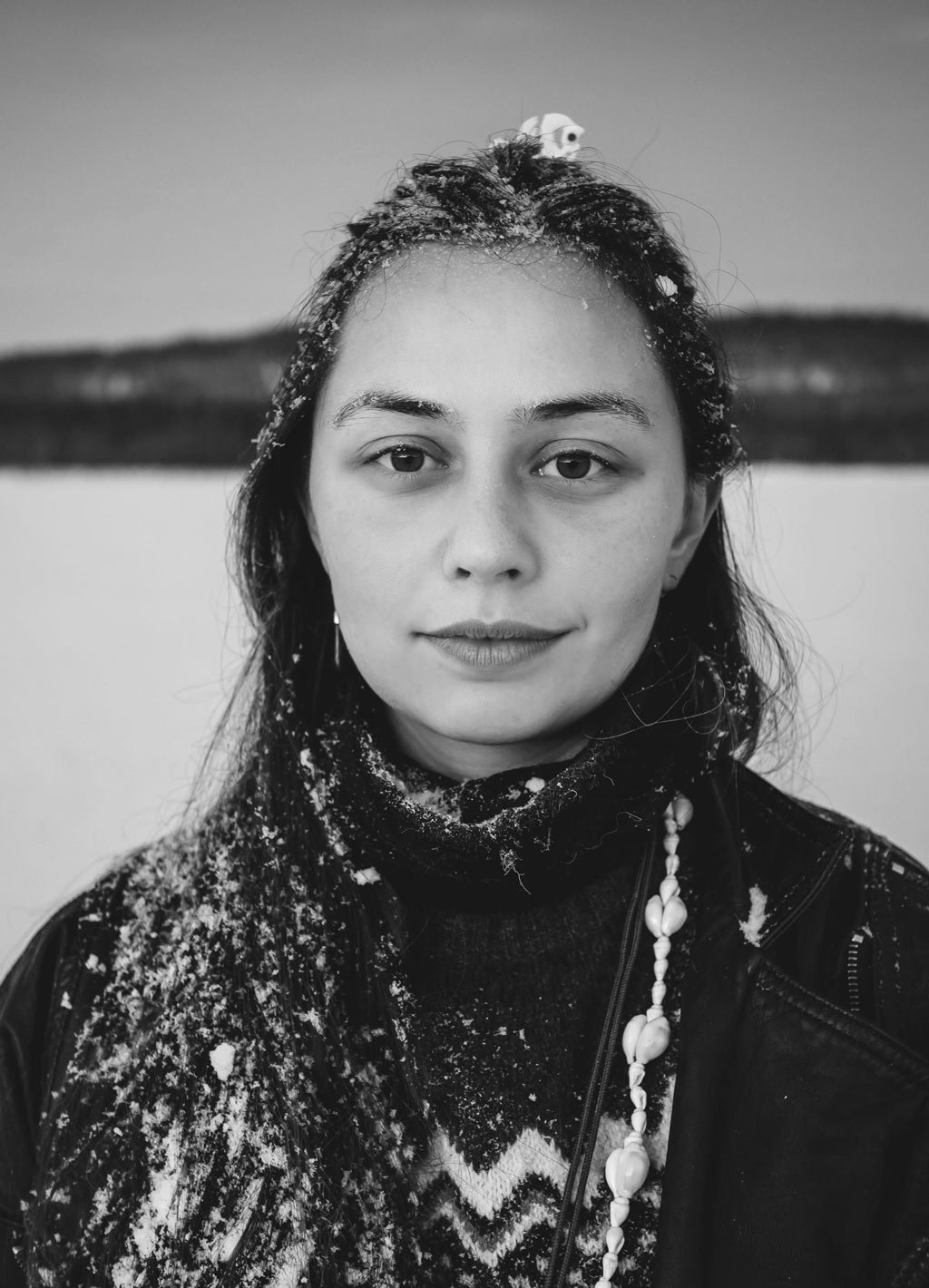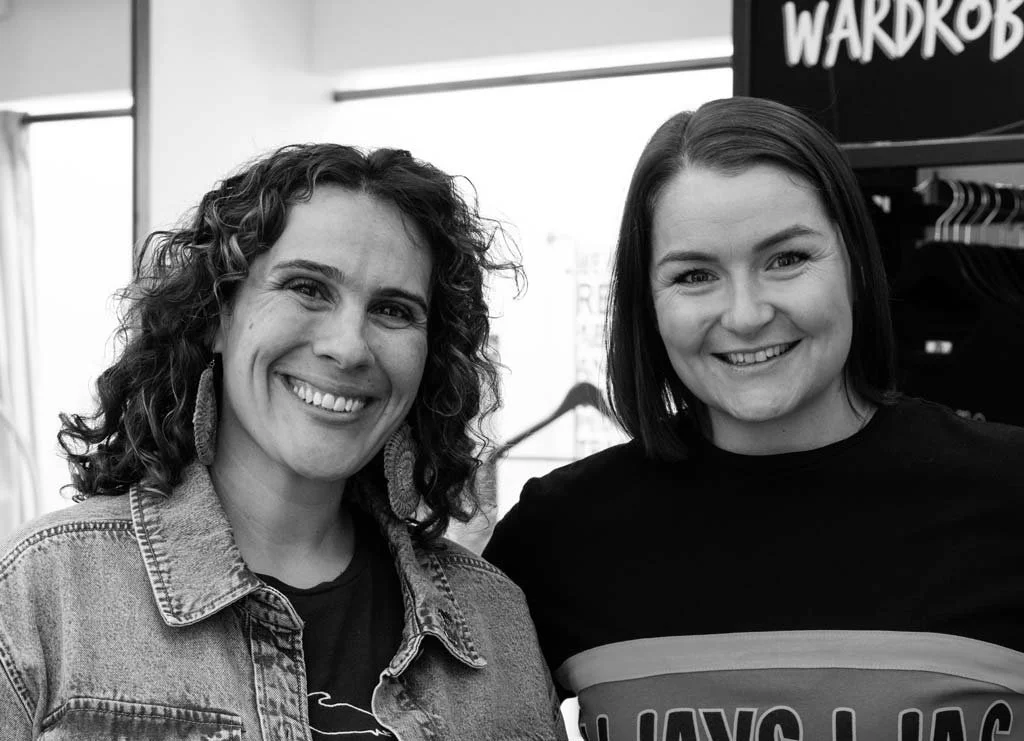India Miro Logan-Riley On How Youth Will Lead Climate Justice And Indigenous Sovereignty
India (Ngāti Kahungunu ki Ngāti Hāwea, Rongomaiwahine, Rangitāne) is the climate justice organiser at ActionStation.
They bring a background in Māori heritage and museum spaces, as well as lived experience of climate injustice. They draw on a broad range of experiences from UN climate negotiations to grassroots work on #landback kaupapa with youngi Māori and Pasifika.
India Miro Logan-Riley was raised in the Heretaunga Plains, which is a bountiful place circled by mountains and the rising Pacific Ocean. India is a co-founder of Te Ara Whatu, an indigenous youth climate justice organization, bringing expertise from advocating at UN sessions. India dreams of resilient communities where everyone is safe and joyful.
India discusses supporting young people in their aspirations for climate justice and collective liberation LIVE FROM THE 2022 SOCIAL ENTERPRISE WORLD FORUM.
Highlights from the interview (listen to the podcast for full details)
[Tom Allen] - What led to your passion in activism?
[India Miro Logan-Riley] - I actually get asked this question a lot. People ask me, “why are you in the climate change space? Why are you an activist?” I say, “why not?” There's no other way that we can do things. Being Māori, being Indigenous, we have a long legacy of resistance and activism. My work is to step into that and ensure that (ideally) future generations don't have to do this activism; that we do our job so well they get to have a joyful time.
Tell us a little bit more about ActionStation, the initiatives and campaigns you're involved with, and how it is all unfolding?
ActionStation is an incredible organisation, because it works across multiple issues. We look at economic fairness, family well-being, climate justice, and honouring Te Tiriti, the Treaty that Māori signed with the Crown back in 1840. It means we get to work across really cool campaigns, but also collaborate and use them to enhance each other. The things we've worked on in the past are prison abolition and reform, justice, sexual harm, and seeing if there are better policies and support in those areas.
We are working on Visioning Projects, coloring the detail of the world we want and making sure those visions come specifically from communities who've been shut out of decision-making.
We also work on local campaigns with community campaigners to run petitions to stop a waste plant from being built, to get more mental health service support or to get better ways to treat our bio waste than throwing them in the harbour.
What are some key learnings or lessons you have learnt throughout your journey?
The first one is to have a team. It can be hard to have sometimes, especially if you disagree on a political matter. We need to figure out those relationships and be able to come together and heal whatever nasty words were said and move forward. The other thing is partnering effectively. We don't hold a lot of our expertise in-house, we work with other lived experience and expert organisations to uplift their campaigns as well. The People's report on the Justice System was done in coordination with the Public Health Team at a university. We bring tools, but it's about being able to humble ourselves and ask questions regarding what the issue is and how it affects people? How do we become allies? How do I shop for other people as well as ask them to shop in my communities? Another part of this is being able to stumble and respectfully call each other out and correct each other at the same time. The other important tip is to remember as heavy as the subjects are, this is good work and what we should be doing. It’s such an honor as well.
© Neil McQueen
What advice would you give to young people seeking to create change?
At first it's about finding a group, and if there isn't a group, make one with your friends. We have to do this in little collectives rather than just singular people, particularly in the media economy and capitalist narratives we live in. A single saviour is a really desirable narrative, but it's not the reality. I think about the story of Rosa Parks, who sat in the whites-only section of a bus in 1955. She was planted there and that was organised by a bunch of activists to create a bit of a wedge issue to generate the conversation. It wasn't a singular hero moment (even though she was so brave to do that). She also had a team around her that strategised and figured out a plan. I will say the other part of the equation is as much as more young people being in this space is so necessary, I'm so proud of the young people who are stepping up and saying, “I should be in school, but we are going to take this on with more tenacity and bravery than our decision-makers.”
the other side of that is what are older generations doing to open up channels for young people to lead? often that's cushioned by people saying our, “asks are impractical or not realistic”.
If you're all about young people, then you're going to say, “here are some resources for you to run with, here's where we will support you, here's where we help ground you and keep your mental health strong and support the well-being of your group to take charge.” We can't do it alone, and often the spaces we do have to go to speak truths of power are very harsh and unkind.
We need older generations to be behind us and help navigate through harmful spaces.
What initiatives and projects do you believe are creating fantastic progress outside of what you're doing?
I can't talk about positive impact without shoutouts to my activists and campaigners, especially youth organisations. I was actually just at Powershift here in Brisbane on the weekend; the Australian Youth Climate Coalition and Seed coming together to talk about what they're doing. I think that was amazing because through working with local communities and unions/workers, they've managed to achieve beautiful impacts. That's just a group of young people coming together and saying, “we are going to do this.” I also think it's important to highlight the unseen and uncelebrated work of communities pooling their resources and helping each other.
© Jonne Sippola
Think of indigenous communities, people of colour, and poor communities who are doing unglamorous work that keeps us going, like making the food or mowing the lawns at the community hall. that's a positive impact as well, because that background work makes the front work happen.
What books or resources would you recommend our listeners to help them on their journey?
History books in general are fantastic. I love a good history book, especially about political movements. I can't think of any specifically off the top of my head, but there are some really good ones out there. There are a lot of good resources from a small publishing house called Loam. They do handy books which provide an insight into the climate crisis and power dynamics within it, as well as helpful resources for how to prepare your community for an emergency? What paperwork do you need to have photocopied that's in your go bag for when you need to get away from a flood, a fire or another disaster? That's the reality of the world we are living in. I will also shout out the work of Adrienne Marie Brown, who's doing beautiful stuff around supporting our community cultures internally to make sure we are taking care of each other. My favorite podcast at the moment is the Maintenance Phase podcast; the cohosts are amazing activists and journalists. They do deep dives into diet fads while debunking them. What's really interesting is they analyse other layers and the way capitalist economies impact our well-being. They're also looking at the ways in which we are internalizing fatphobia or moral policing around self-care. It's nice to get out of the climate change window for a bit and hear about other issues (accompanied by their charisma and sassiness).









